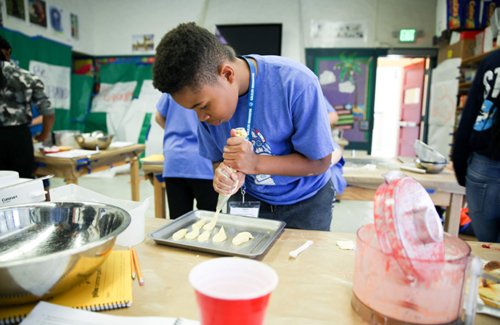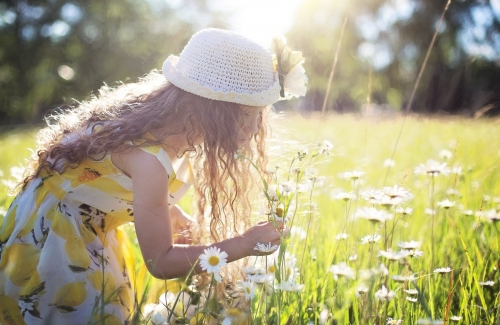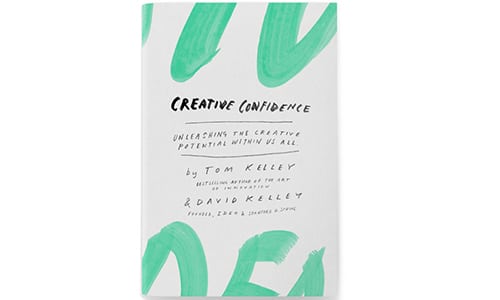Helping Children with Anxiety: Building Confidence and Determination

The school year has started, and with it come packed schedules, extracurricular activities, homework assignments, and deadlines. The demands can be stressful, and in some cases, anxiety-inducing.
Despite our best efforts to manage stress for our kids, anxiety occasionally creeps in. In the moment, we can help them to relax and let go of worries and negative emotions. Once the crisis has passed, it’s a great time to think proactively and come up with ways to build kids’ confidence and determination, giving them tools to better deal with anxiety or potentially prevent it in the first place.
KIDS AND ANXIETY
Brain research tells us that in order for kids to focus on learning, they must feel physically safe and emotionally secure. Frequent or prolonged anxiety can prevent learning and initiate a vicious cycle that can negatively impact schoolwork. Serious anxiety can have physical, emotional and behavioral manifestations, and when in doubt, parents should not hesitate to seek professional help. But many kids become anxious on occasion. These things can influence anxiety in kids:
Stress
There are many stressors that influence anxiety in tweens, including transitions at home or school, academic or athletic demands, and issues with family or friends. Without coping strategies, stressors can take hold of kids, impacting their lives at home and school in negative ways.
Diet
According to the Mayo Clinic, though diet cannot cure anxiety, a healthy diet can support a calm balance. Eating protein, such as eggs or Greek yogurt, at breakfast gets the day off to a positive start. Including complex carbs, like oatmeal, brown rice, and quinoa, raises serotonin levels, which has a calming effect. Drinking plenty of water throughout the day helps to avoid dehydration, which can negatively affect mood. Help kids avoid caffeinated beverages and foods that seem to cause a negative reaction.
Sleep
Bedtime anxiety has a variety of common causes at various ages. And while anxiety can influence sleep, the reverse is also true; lack of sleep can exacerbate anxiety. Maintaining a regular sleep schedule and establishing a calming bedtime routine can help.
Social Media
The prevalence and popularity of social media has the potential for both positive and negative consequences for users. Though it can be used to maintain contact and increase communication, social media can also be a stressor and source of anxiety. Parents are urged to monitor and set limits for kids’ use, and to help them keep it in perspective.
HELPING CHILDREN COPE WITH ANXIETY
There are many simple steps parents can take to help with occasional anxiety. Some of them are tools that can be used proactively when kids feel themselves becoming anxious.
Yoga, Meditation, and Mindfulness
Just Breathe: Meditation, Mindfulness, Movement and More, by Mallika Chopra, is geared specifically towards kids age 8 – 12. Her book is a practical, illustrated guide filled with specific breathing techniques and exercises to help kids deal with stress and banish anxiety. Chopra uses kid-friendly imagery such as keeping your cool and blowing away the butterflies to teach techniques they can easily embrace.
Nurturing Living Things
Spending time with plants and animals can be a very grounding experience and one that kids easily enjoy. Caring for living things promotes calm and focus, helping kids quiet their minds. It can be therapeutic and fun.
Brain Breaks
Planned brain breaks during times of extended concentration or periods of stressful interaction can promote relaxation and prevent anxiety.
Physical activity, such as jumping rope or shooting baskets, challenges kids and helps to dissipate stress.
Go Noodle is a website with videos that lead kids through short brain breaks. With a free membership, they can select from hundreds of videos that feature exercise, dance and mindfulness activities.
Sprinkling these in between homework assignments or chores, perhaps every 10-15 minutes can break up the monotony, eliminate anxiety and give kids something to look forward to.
Build Kids Up
One of the best things parents can do long-term is to provide kids with experiences that build confidence and determination, thus empowering resilience that helps them cope when they become anxious.
What if a fun and engaging summer camp could help kids to realize their potential and equip them to handle anxiety? On a mission to provide unparalleled summer fun that enriches kids’ lives, Galileo’s camps for preschoolers, elementary schoolers, and middle schoolers help kids develop creative confidence and ignite their inner innovators.
By appealing to their innate curiosity and drawing out their creative ideas, Galileo camps teach kids a framework for making their ideas become a reality. In the process, campers learn to handle challenges with courage and perseverance and view mistakes as learning experiences. These summer camp adventures give kids tools they can use to strengthen their resolve when the going gets tough.

PROVIDING RELEVANT TOOLS
Though stress and anxiety are unfortunate facts of life, there are actions we can take to minimize their occurrence and lessen their effects.
Families can help kids cope with anxiety and giving them tools to combat worries and fears. By proactively building kids up, imparting confidence and determination, parents can encourage resilience and even help prevent the negative impact of occasional anxiety. If chosen thoughtfully, through the process, kids may find tools they can use for a lifetime.

 Incorporating Mindfulness to Help Elementary Students With Concentration and Collaboration
Incorporating Mindfulness to Help Elementary Students With Concentration and Collaboration 

